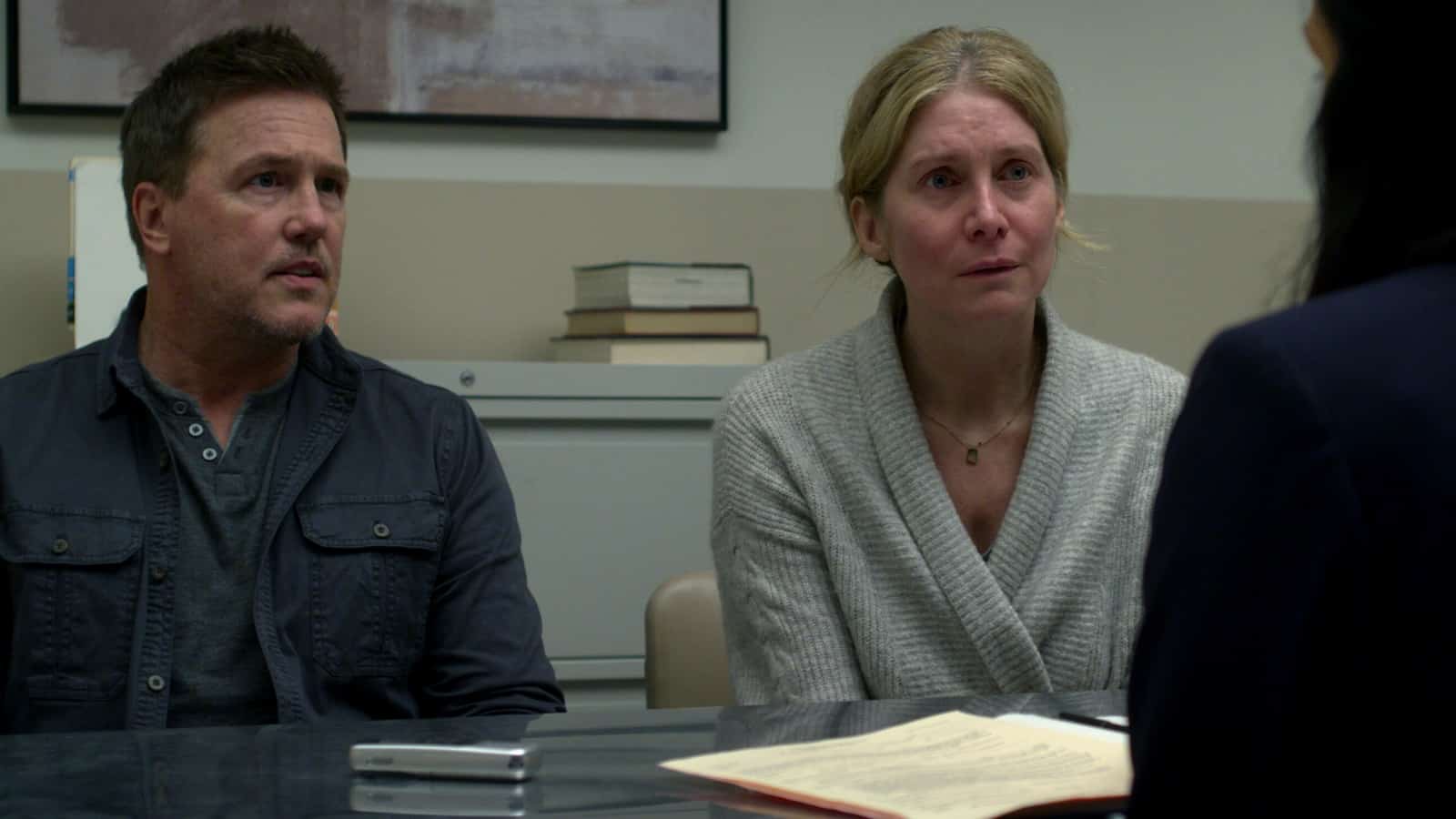When Time Got Louder (2023) – Review
Connie Cocchia’s “When Time Got Louder” is a gentle and heartfelt coming-of-age movie and family drama.

Spoiler Alert: This summary and review contains spoilers.
Additionally, some images and text may include affiliate links, meaning we may earn a commission or receive products if you make a purchase.
“When Time Got Louder” General Information
| Director | Connie Cocchia |
| Screenplay By | Connie Cocchia |
| Based On | N/A |
| Date Released (Video On Demand) | November 17, 2023 |
| Genre | Drama |
| Film Length | 1 Hour, 54 Minutes |
| Content Rating | Not Rated |
| Noted Characters and Cast | |
| Abbie | Willow Shields |
| Kayden | Jonathan Michael Simao |
| Mark | Lochlyn Munro |
| Tish | Elizabeth Mitchell |
| Karly | Ava Capri |
“When Time Got Louder” Film Summary
“When Time Got Louder” is a deeply heartfelt and heartbreaking story whose title can apply to all characters involved. Writer and director Connie Cocchia shows great sensitivity with a heavy subject matter and gently conveys how one change in a family dynamic can send ripples through others.
Abbie (Willow Shields) is going off to college, but she’s concerned about leaving her family, especially her autistic, non-verbal teen brother Kayden (Jonathan Michael Simao). Abbie and Kayden are best friends, but Kayden struggles more when Abbie’s not around. As Abbie is flourishing and finding herself in college, each day is a fight to survive for her family.
“When Time Got Louder” takes place in flashbacks to Abbie’s time in college, with a budding new romance with Karly (Ava Capri) and a tragic event that leaves the family being questioned in a hospital. Abbie’s parents, Mark (Lochlyn Munro) and Tish (Elizabeth Mitchell), are struggling financially and fighting more. Kayden is acting up more at school and at home. As the family troubles increase, Abbie is torn between flourishing with her new girlfriend at college and helping her family at home.
“When Time Got Louder” is not a light watch, and it shouldn’t be. Cocchia understands that many families endure these types of situations, feelings, and questions every day. How does a family change when a member leaves? How do you change when having to say goodbye? “When Time Got Louder” may sometimes immerse itself too deeply in grim thoughts, but because of great acting and complex characters, the movie glows as a story about resilience.

Content Rating Explanation
“When Time Got Louder” may be unrated, but it includes mature subject matter and some sexual content.
Character Descriptions
Please Note: This character guide is not an exhaustive list of every cast member.
Abbie
Abbie is a mature and caring young woman who is entering college. While she’s capable of taking on her education, she has a difficult time leaving her brother and navigating her first romance with a woman.
- The actor is also known for their role in “The Hunger Games.”
Kayden
Kayden is a non-verbal, autistic teen who loves drawing, Eeyore, and his older sister Abbie. When Abbie leaves for college, Kayden starts to digress and have multiple tantrums.
- The actor is also known for their role in “Turner and Hooch.”
Mark
As Abbie and Kayden’s father, Mark tries his best to support his family but doubts his and his wife’s abilities to take care of Kayden alone. Mark strives to make Kayden more independent, but often clashes with his wife about how to best take care of Kayden.
- The actor is also known for their role in “Riverdale.”
Tish
As Abbie and Kayden’s mother, Tish tries to be the caretaker of all, but sometimes feels isolated and like a single parent as Mark works more and more. She has to endure Kayden’s meltdowns more than Mark, and she insists that Kayden needs to stay with them longer.
- The actor is also known for their role in “LOST.”
Karly
Karly is Abbie’s romantic interest and more confident with her sexuality than Abbie. While Karly wants a relationship with Abbie, she also feels hurt by Abbie’s reluctance to share her romance with her family.
- The actor is also known for their role in “Do Revenge.”

Other Noteworthy Information
- This is Connie Cocchia’s feature-length film debut. Cocchia and the crew incorporated LGBT+ voices and neurodivergent voices throughout the filmmaking process.
Discussion Items
Let us know your thoughts in the comments.
- What did you think of the portrayal of people with autism in “When Time Got Louder”? Was it accurate? Or what could have made it more accurate?
“When Time Got Louder” Review
Our Rating: Positive (Worth Seeing)
Highlights
Heartfelt Performances and Well-Written Characters

From the moment we see the mom’s (Elizabeth Mitchell) breakdown and demand to be with her son, we are immersed in this family’s tragedy. Cocchia lets the camera linger on the actors’ faces without words; their care for each other and burden of change are relentless in their eyes. Part of the tremendous performances is due to Cocchia’s excellent writing, which makes each character’s struggles and hopes clear. From Willow Shields as Abbie to Sharon Taylor as a social worker, we feel for everyone.
Genuine Care for Marginalized Subjects
“When Time Got Louder” treats its subjects with care, sharing both the pain and beauty of discovering your sexuality, caring for someone neurodivergent, and communicating all of this to your family. “When Time Got Louder” is a fitting and poetic title for its characters, who need a moment to breathe and pause yet have no choice but to live and endure. There’s no mockery, no lighthearted montage, and no easy answers in “When Time Got Louder,” but all of this makes the movie more memorable.
On The Fence
Lack of Agency for Kayden

While we see Kayden’s hurt throughout “When Time Got Louder,” the movie doesn’t quite show him as more than a burden on the rest of his family. While we can sympathize with Kayden, the drama seems more invested in how Abbie and her parents care for Kayden. That’s fine if that’s the movie that was intended, but it also continues a trend of people with autism not really having a movie for them but a movie about them.
The Downbeat Tone Can Make the Movie Feel Longer
“When Time Got Louder” is cloaked in gray and cool blues. While this is a drama, showing a moment of celebration with Kayden and his parents or a lighthearted moment between them could have benefited the story.
Who Is This For?
People who enjoy coming-of-age stories, LGBT+ stories, neurodivergent stories, or family dramas coping with change might enjoy “When Time Got Louder.”
Recommendations
If you like this movie, we recommend:
Check out our movies page for our latest movie reviews and recommendations.
Images used for editorial and commentary purposes. All rights remain with their respective copyright holders.


